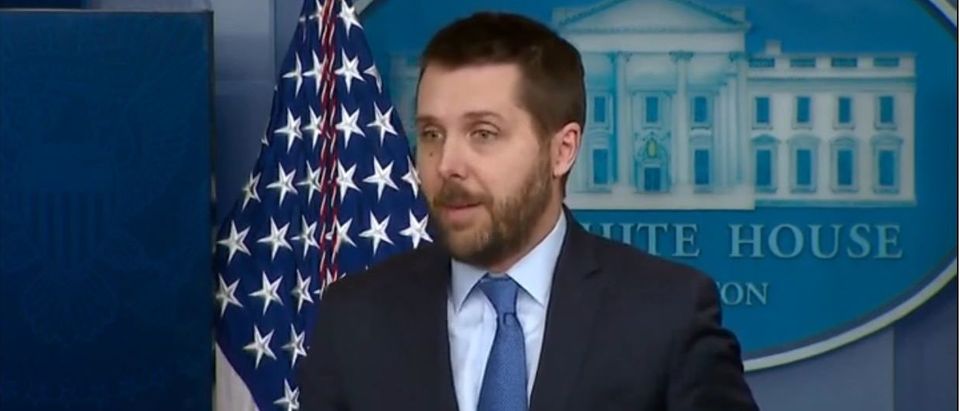National Economic Council director Brian Deese refused to reveal whether or not he believes that inflation will continue into next year during a Thursday White House press briefing.
Federal Reserve chairman Jerome Powell testified to the Senate Banking Committee on Nov. 30 that he believes economists should “retire” the word transitory due to its lack of clarity, adding that economists “mean that it won’t leave a permanent mark in the form of higher inflation” when they say transitory. Powell added that inflation was “more persistent and higher than we’ve expected,” and that he could not make a prediction about whether it will subside in 2022. (RELATED: Powell Says Omicron Variant Will Prolong Inflation Worries And Supply Chain Issues)
However, when asked by NBC News’ Kristen Welker whether or not he believes that high prices will continue into the next year, Deese refused to answer.
“I am not going to get into the prediction business,” Deese responded, “other than to say and echo what I said at the beginning. Most outside independent forecasters continue to see price increases moderating, and moderating meaningfully, over the course of next year.”
WATCH:
Deese did acknowledge that Americans are seeing higher prices, blaming supply chain issues that he described as “global.” Inflation reached a 30-year high in October, the most recent month for which the U.S. Bureau of Labor Statistics has released data. Deese, President Joe Biden, and senior advisor Cedric Richmond met with business leaders in late November to address shortages and supply chain issues.
“We need to do everything we can to address” raised prices, Deese added.
The Biden administration has long argued that price increases will subside in 2022, although they have received criticism from fellow Democrats, including former Treasury Secretary Larry Summers. Summers has blamed the Federal Reserve’s loose money, which Powell instituted to keep unemployment low during the COVID-19 pandemic. The Federal Reserve has since slowed bond purchases, and is expected to end pandemic stimulus entirely by March 2022.


